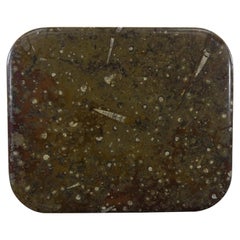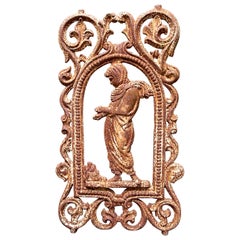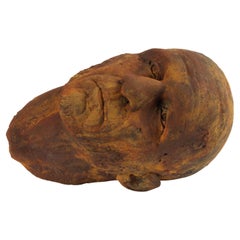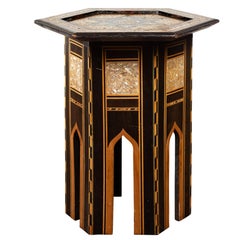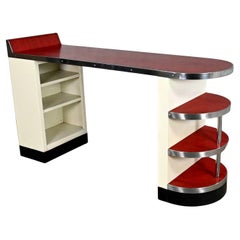International Style Architectural Elements
The International Style, a modernist movement within architecture and furniture design that was given its name by American architect Philip Johnson and historian Henry-Russell Hitchcock, was born during the 1920s and ’30s. It gained steam initially in Europe and then in the United States as a response to the first World War. Building projects associated with the movement, as well as vintage International Style chairs, tables and other furnishings, are minimal and pared back.
Pioneers of the International Style — architect Walter Gropius and his Bauhaus colleagues Ludwig Mies van der Rohe and Marcel Breuer, De Stijl advocate and Dutch architect J.J.P. Oud and visionary designer Le Corbusier — stripped away decorative elements and placed considerable value on functionality and clean lines, integrating the use of industrial materials like steel, concrete and large sheets of glass in their work. Quite aptly, this mode of design and architectural style coincided with an era now known as the Machine Age and became a global symbol of modernism. The primary motive of its practitioners was to address the changing needs of a rapidly industrializing society, especially the demand for office complexes and apartments in large cities, through economical, technologically advanced, yet aesthetically pleasing designs for furniture and buildings.
“Space and light and order. Those are the things that men need just as much as they need bread or a place to sleep,” said Le Corbusier of the philosophy behind his practical modernist architecture.
The International Style’s designers and architects were inspired by the advantages afforded them by the era’s new technology and industrial machinery as well as state-of-the-art materials. Le Corbusier was fond of framing his buildings in steel but reinforced concrete made far more economic sense. He is probably most admired for the iconic private homes and commercial buildings that he designed or codesigned with his cousin Pierre Jeanneret, which are spread across the world, from New York City to Paris to Chandigarh, India. Today, Breuer’s Wassily Lounge chair; the elegant LC series created by Le Corbusier, Jeanneret and Charlotte Perriand; and Mies van der Rohe’s Barcelona chair, crafted with his romantic partner, designer Lilly Reich, are emblems of progressive modernist design and all make prominent use of tubular steel. Vintage originals are the prized cornerstone of collections.
“The International Style is probably the first fundamentally original and widely distributed style since the Gothic,” posited Johnson in the book that accompanied “Modern Architecture: International Exhibition,” an architectural show he cocurated with Hitchcock that featured the work of Frank Lloyd Wright, Le Corbusier, Richard Neutra and others. While the term “International Style” had previously been circulating in Europe, when the show opened at the Museum of Modern Art in 1932, it yielded a much broader application of this important style of design.
Find International Style furniture on 1stDibs.
1980s German Vintage International Style Architectural Elements
Marble
1850s French Antique International Style Architectural Elements
Iron
2010s American International Style Architectural Elements
Resin
Mid-20th Century Moroccan International Style Architectural Elements
Mother-of-Pearl, Wood
19th Century English Antique International Style Architectural Elements
Iron
20th Century French International Style Architectural Elements
Concrete
Mid-19th Century European Antique International Style Architectural Elements
Iron
2010s American International Style Architectural Elements
Marble
Early 20th Century Chinese International Style Architectural Elements
Agate, Soapstone
19th Century English Antique International Style Architectural Elements
Ceramic
Late 20th Century Dutch International Style Architectural Elements
Slate, Copper
1980s Unknown Vintage International Style Architectural Elements
Travertine
Late 20th Century European International Style Architectural Elements
Marble
Late 20th Century European International Style Architectural Elements
Marble
Mid-20th Century American International Style Architectural Elements
Metal, Stainless Steel, Chrome
